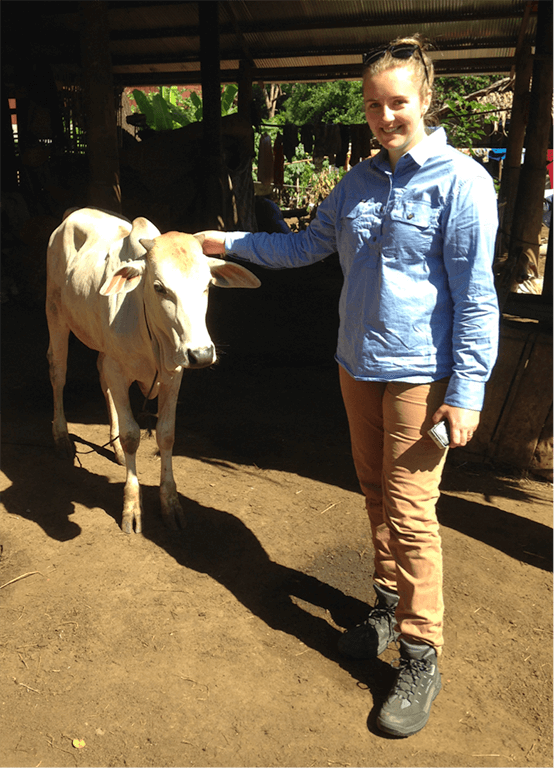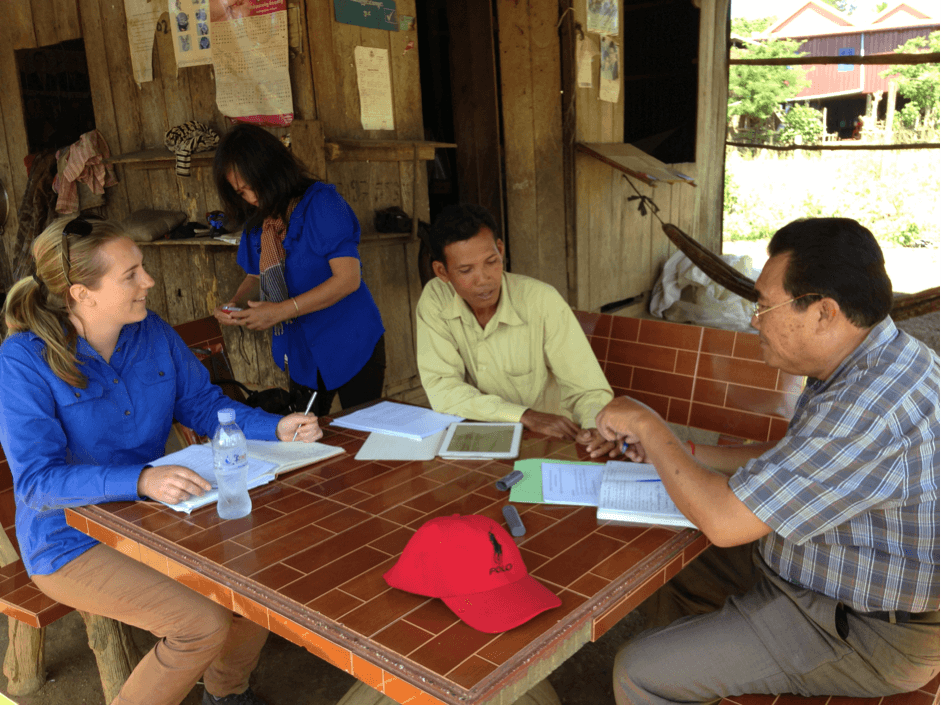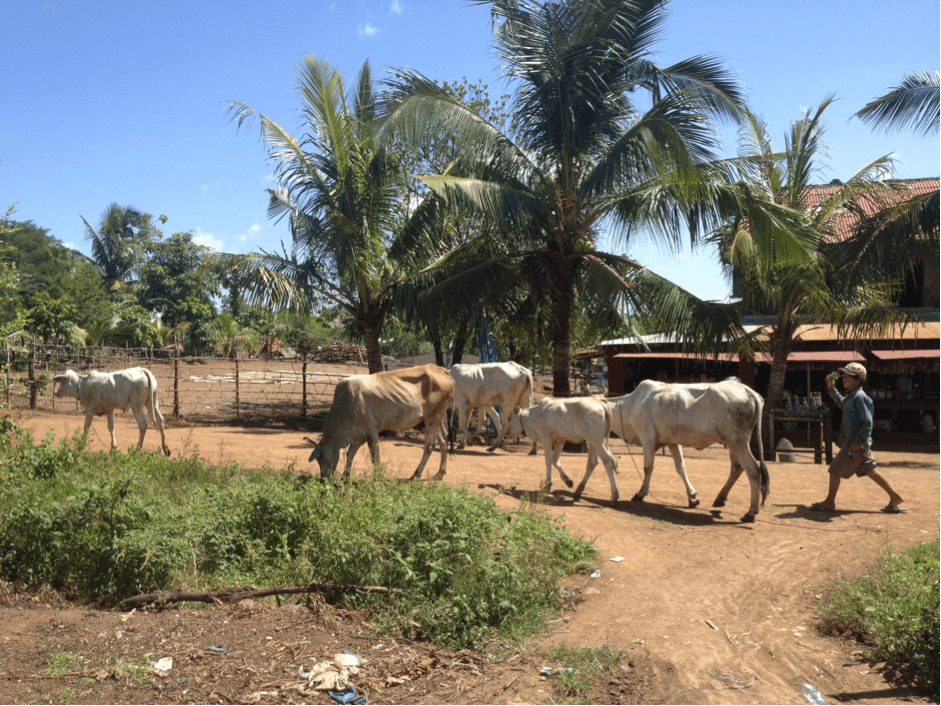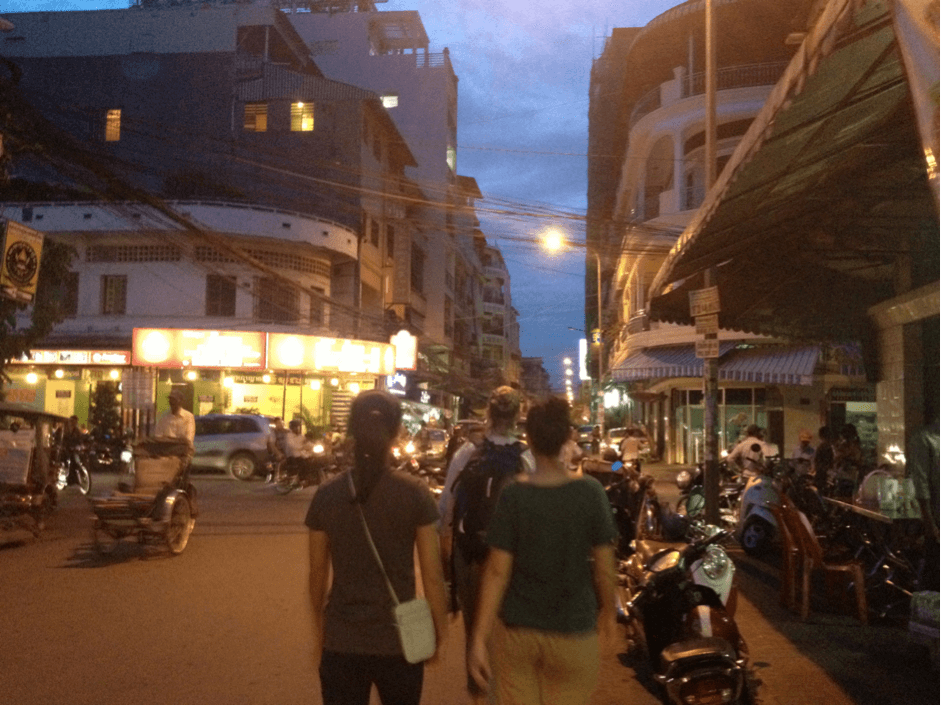Applied field research in Cambodia
What a privilege to have just returned home from 1 month adventure in Cambodia and Lao PDR to take part in an ACIAR funded project “Village-based biosecurity for livestock disease risk management in Cambodia”. I am an undergraduate student studying Animal and Veterinary Science at the University of Sydney. My final year includes an honours project and I was lucky enough to be able to join the Mekong Livestock Research team, which provided me the opportunity to spend time in country with the support of an AsiaBound scholarship from the Australian Government (now called the New Colombo Plan).
The project involves interviewing farmers to assess their knowledge, attitudes and practices to livestock production and biosecurity. I joined a team from our collaborating partner, the Department of Animal Health and Production (DAHP) in Cambodia. We travelled to Kampong Cham and Tbong Khmum Provinces, a couple of hours away from the capital, Phnom Penh. Over 4 days we visited smallholder villages and I am thankful that I was able to see a different part of Cambodia and engage with the community, farmers, their families and animals. I valued seeing how the data were collected, providing appreciation of what research in international agricultural development really is. Even though the survey had been translated from English to Khmer and the staff received training to ensure understanding, I was surprised at how some questions appeared to be misinterpreted and farmers appearing confused. Seeing this first hand will help me manage potential information bias when I analyse the data.

Photo: Kate gets face-to-face with a friendly local calf
I had the opportunity to talk to Village Chiefs and was humbled by their willingness to give up their time to talk to me and beyond that be thankful that we were giving our time; they wished us luck with our studies, health and happiness. It was encouraging to witness their enthusiasm for the project interventions of vaccination and training in fodder conservation. Mr Yan Youg, Vice Village Chief of Ampil Chrum in Tbong Khmum, has valued the importance of knowledge for a long time advocating for the training of farmers at commune meetings. Knowing that the project will be supported by leaders such as him filled me with confidence and excitement for the future of Ampil Chrum village and the other villages in the project.

Photo: Applied field research: surveying farmers to gain insight into knowledge, attitudes and practices
During the 3 weeks in Cambodia we received language training to learn basic Khmer which was very helpful for greeting and bartering. However we still needed the DAHP staff to translate when we talked to farmers giving me a true appreciation of being ‘lost in translation’. I am so thankful for the patience of the DAHP staff and their willingness to help us understand and learn what agriculture is for smallholders and their villages. At times I struggled to keep my frustration under wraps when language barriers hindered understanding for both of us; my patience was challenged and I hope it has grown and will help me in the future.

Photo: Young boys in Cambodia are often charged with taking cattle out for daily feeding
I found living in Phnom Penh for 3 weeks a great experience. Being able to enjoy the life of the city rather than holidaying or just passing through. We formed a routine, heading into office the in the morning, enjoying a filling lunch at the local restaurant and language school in the afternoon. Time was spent wandering streets in search of good food. Rice with pork became a breakfast staple for me, except when I got cravings for pancakes. Bartering with tuk tuk drivers became easier and less stressful and in the end we could direct in Khmer. Navigating markets in search of souvenirs was always an interesting experience with every store holder wanting your attention. Coming away from this adventure I feel that rather than having my time created for me as a tourist I experienced the true Cambodia for which I am grateful.

Photo: Kate (middle) and her University of Sydney colleagues explore Phnom Penh


